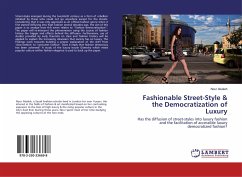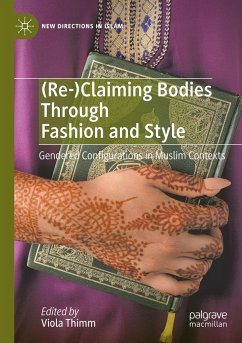
Fashionable Street-Style & the Democratization of Luxury
Has the diffusion of street-styles into luxury fashion and the facilitation of accessible luxury democratized fashion?
Versandkostenfrei!
Versandfertig in 6-10 Tagen
24,99 €
inkl. MwSt.

PAYBACK Punkte
12 °P sammeln!
Street-styles emerged during the twentieth century as a form of rebellion initiated by those who could not go anywhere except for the streets. Considering that it was only approved as an official fashion genre when it first started diffusing into high fashion several decades ago, the aim of this paper is to analyze how this event relates to ''fashion democratization''. The paper will re-interpret the phenomenon using the course of fashion history the trigger and effects behind the diffusion. Furthermore, use of studies provided by early theorists on class and fashion history will be applied to...
Street-styles emerged during the twentieth century as a form of rebellion initiated by those who could not go anywhere except for the streets. Considering that it was only approved as an official fashion genre when it first started diffusing into high fashion several decades ago, the aim of this paper is to analyze how this event relates to ''fashion democratization''. The paper will re-interpret the phenomenon using the course of fashion history the trigger and effects behind the diffusion. Furthermore, use of studies provided by early theorists on class and fashion history will be applied to explain the increasing obsession that society has on luxury. The findings work towards building a proper explanation of the shift from 'class fashion' to 'consumer fashion'. Does it imply that fashion democracy has been achieved? A study of the luxury house Givenchy which mixes popular culture within fashion elegance is used to back up the paper.












